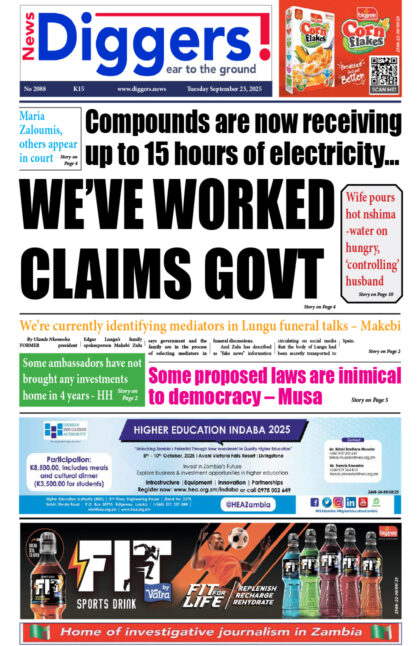Minister of Tourism Charles Banda says the drones launched by World Wildlife Fund to monitor wildlife will help reduce poaching.
Speaking during the launch at Lusaka National Park, Friday, Banda hailed WWF for the initiative saying it was a cost effective surveillance method.
“The major threat to the wildlife sector in particular is loss of wildlife habitats. This is compounded with poaching, which in recent years has grown to be more sophisticated in nature with poachers becoming more dangerous and advanced in their tactics. Protecting the wildlife is an extremely complex task and requires the involvement of many stakeholders including defence and security wings non-governmental organisations and communities. Protection of wildlife is so complex that not any organization or department can do this by themselves. And the need to collaborate is high in safeguarding the future of Zambia’s natural resources. In June 2016 the Zambian government produced guidelines on the use of remotely Piloted Arial Systems (PRAS) also known as Unmanned Arial Vehicles or drones,” said Banda.
“This provided an opportunity for the Zambian conservation sector to take advantage of these advances in drone technology. As they are cost effective and more efficient tools for surveillance, poaching, threat detection and wildlife research applications. This project is aimed at enabling the department to attain superiority in the air for increased efficiency in detecting and responding to poaching and other threats in Zambia’s protected areas. This will also increase the participating partner’s capacity for ecological monitoring using the UAV platform. I am therefore very grateful to WWF for its initiative to make this happen.”
And WWF Country Director Naachilala Nkombo described the launch as ground breaking.
“Today we mark the commencement of the first of its kind in Zambia. It is a ground breaking conservation initiative that will contribute to increasing the effectiveness of the DNPW and selected partners capacity in enhancing the world wildlife management operations such as; wildlife counting, monitoring of wildlife habitat, mapping and surveillance and detection of poaching threats in our national parks. WWF believes that the use of drones will contribute directly towards conservation as well as wildlife based tourism development. This will ensure that Zambia’s tourism takes its right position. The birth of this drone project can be traced back to 2013 when a needs reassessment was made amongst our partners primarily DNPW on the relevance of this kind of technology to support wildlife management. WWF is very proud to facilitate the piloting of the UAV’s in Zambia. We recognise that we cannot do this without the leadership of the government and our sincere thanks go to the minister,” said Nkombo.
























